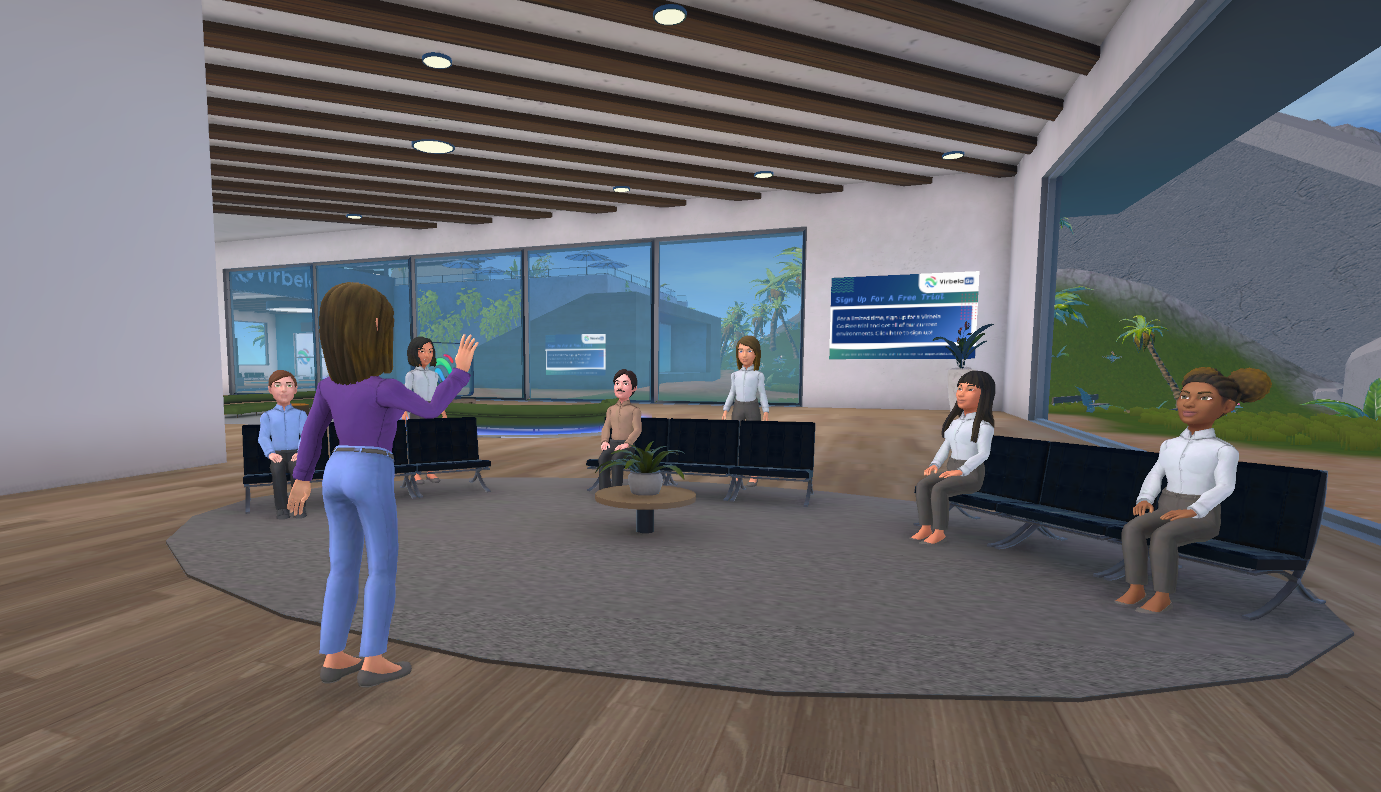Education is at a spark point. Things are changing for students, educators, and administrators—from where they learn and teach to what it’s like in the modern classroom.
Today’s educational thought leaders gathered for a recent panel, Evolution of Education: What Does the Future Hold?, in Virbela’s Open Campus to discuss how technology and teaching can create stronger educational institutions to serve all learners.
Here are a few takeaways from the discussion. You can watch the full video here, too.

Taking Education Virtual
Education holds a special place at Virbela. One of Virbela’s founders, Alex Howland, PhD, originated the idea for Virbela while working on his degree in organizational psychology (that’s what his PhD is all about).
By experimenting with the interactivity and presentation abilities of a virtual world, Howland was able to develop a platform that holds great promise for the future of education.
And, since Virbela became his full-time job quickly thereafter, he knows firsthand that the main value of an education is its ability to create a pipeline to higher-wage work.
Within that framework of education’s real-world impacts, Howland shared the stage with educational professionals who brought different perspectives and experiences to the panel.
One thing they all have in common? They’re deeply vested in the future of education. Follow them on LinkedIn to keep up-to-date with their work:
- Cindy Hanson - Director, Strategic Innovation at UC San Diego
Follow Cindy Hanson on LinkedIn
- Marineh Lalikian - Director, Stanford LEAD Online Business Program
Follow Marineh Lalikian on LinkedIn
- Dr. Sonny Magana - CEO, Author at Magana Education
Follow Dr. Sonny Magana on LinkedIn
- Sarah Segrest - Director of Strategy & Innovation, Douglas Stewart
Follow Sarah Segrest on LinkedIn
Scaling for Institutions
An element of great importance to the panelists is ensuring that virtual technologies can scale for institutions of all sizes.
There are so many ways that a virtual world can ease issues around scaling. For instance, classroom crowding is a common problem at today's schools. In a virtual world, campuses are fast and easy to scale, plus the interior of classrooms and offices are configurable to allow seating and presentation-board customization.
Onboarding is just as simple. This is largely because virtual worlds require a Wifi connection—and that’s it. In an era where most students have at least some experience gaming or interacting as first-person avatars, joining a campus is natural for most students. For educational staff who may be new to virtual worlds, a session or two is usually all it takes to feel at home.
One stand-out issue for the panel: How can schools challenge teachers to bring creative lessons to the forefront? It’s no longer enough to simply recite a lesson and hope everyone gets it in time for a test.
Education is valuable for multiple reasons, but one of its primary purposes is to prepare students for careers. That means using the technological tools and environmental opportunities available today to enhance learning.
Dr. Magana spoke of his own experiences as one of the first virtual school founders in the world. His take on the matter is that it is—and should be—a continuing challenge. As the world changes, so must educational institutions.
Addressing Pain Points
Each panelist was pretty clear on one point: teaching online can be really hard. If it’s not a sea of video screens (and the resulting eye and brain fatigue), it’s the weird lack of engagement. Is anyone listening?
Even if you don’t expect students to remember everything forever, you want to know they’re getting a clear lesson they can use as a building block or apply in the real world when it’s time.
One technique that’s becoming outdated is the idea of tell and practice. This method involves a teacher explaining something and telling students to memorize it. The diligent students do--at least until exam time.
But is it really serving anyone’s higher interests to just memorize? In an interactive environment, discussion becomes a key value proposition. The multilateral interactivity of a virtual world is perfect for driving conversations that go deeper, test theories, play with intellectual scope, and more.
Getting everyone in on these discussions matters, too. Lalikian describes a vision of a world where virtual education allows for diversity, inclusivity, and broad equality measures across all facets of learning—a dream she believes could extend to society as a whole when it happens regularly enough in classrooms.
The panelists also discussed their moral and political obligations to deliver as much accessibility as they could to their current or prospective students. Virtual worlds help to shape that vision with their rich environments and simplicity of use.
Watch the full discussion now: Evolution of Education: What Does the Future Hold?
Or get started designing your virtual campus now: sales@virbela.com




